How Coffee Influenced The Course Of History
I love drinking coffee every morning. As a fellow human being, you probably do too.
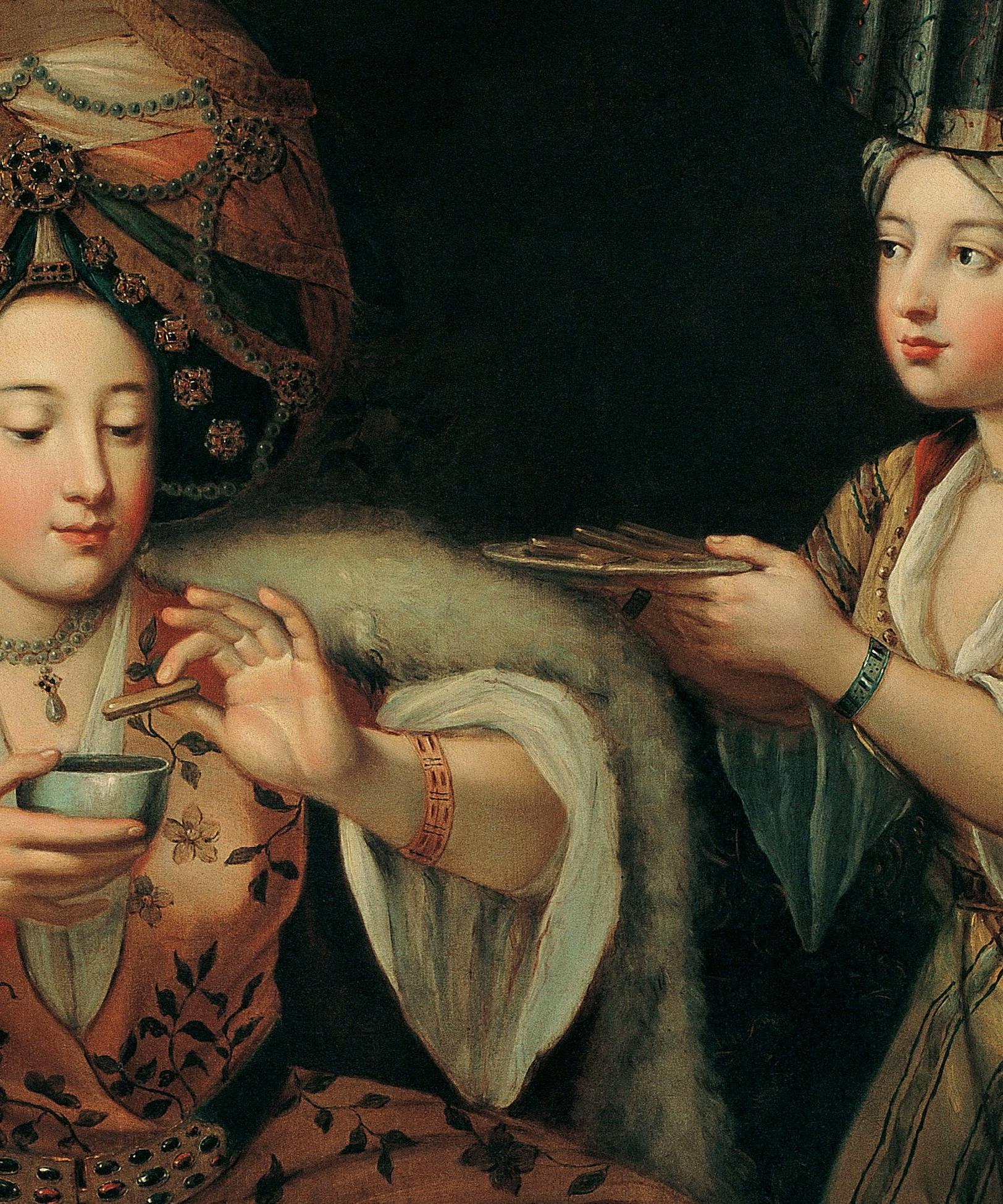
Coffee is not only the second-most traded commodity in the world, but our days revolve around it. Many of our days don’t start until we have our first (or third) cup, so it only makes sense that so much of the past few centuries have been influenced by the production of coffee.
Here’s a quick overview of the history of coffee and how it influenced the course of history.
Coffee in the Middle East: The Origin of Coffee Houses
The first coffee beans are believed to have originated in Ethiopia, and farmers noticed that goats who ate coffee beans were more energetic than those who didn’t eat them. Drinking coffee didn’t become common until the 15th century, when it became popular in Middle Eastern countries like Yemen, Persia (modern-day Iran), and Turkey. Before it became a recreational drink, coffee was used for religious and medicinal purposes in Middle Eastern countries and became popular among the wealthy.
As coffee became more widely available, coffee houses began to open across Middle Eastern cities and towns. Unlike European countries, most Middle Eastern countries didn’t have taverns as alcohol is banned in the Muslim faith, so coffee houses became the main place for people to socialize.
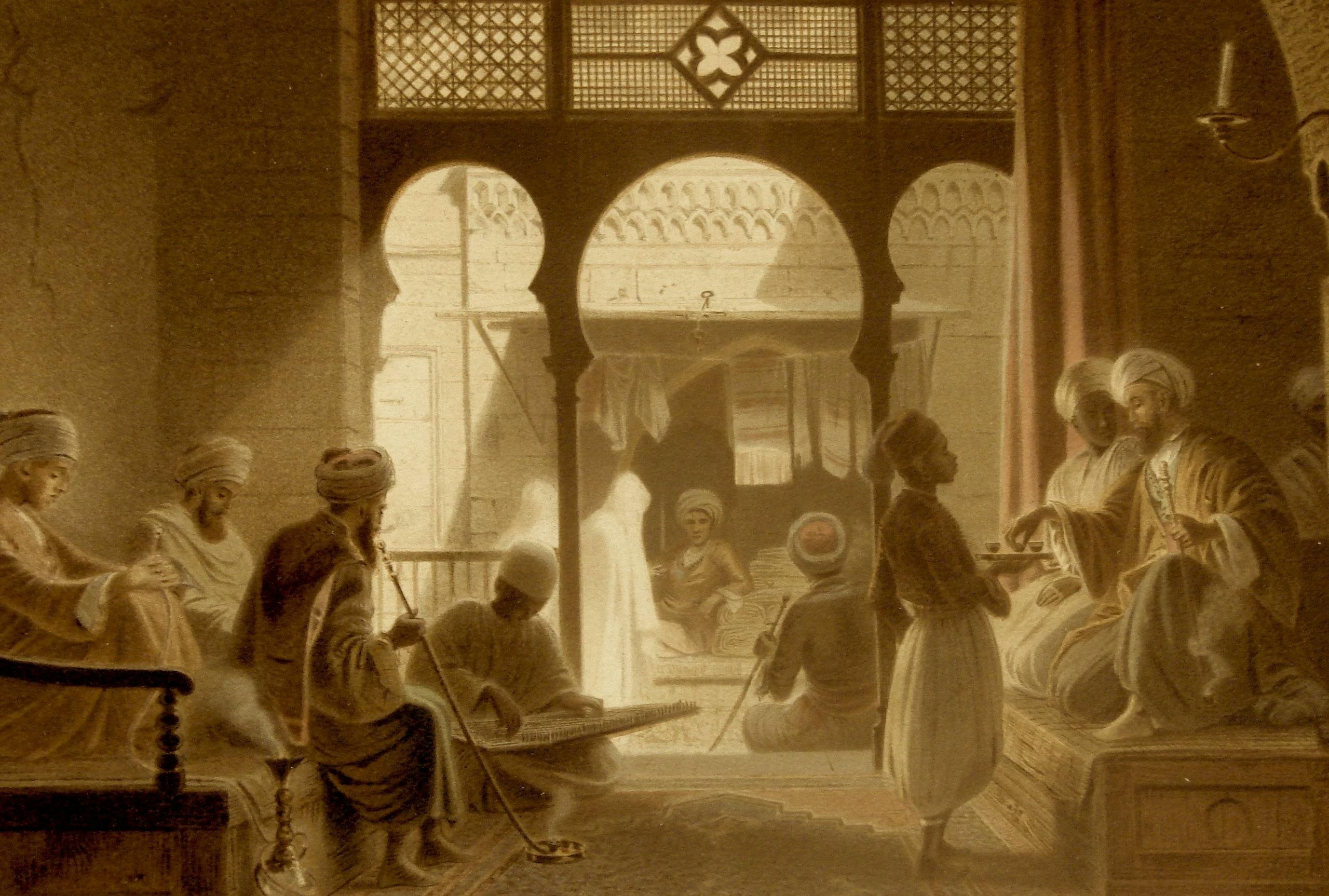
A coffeehouse in Cairo, 18th century. Via Wikimedia Commons.
Coffee houses also became a place where political dissidents gathered. In 1511, the governor of Mecca, Khair-Beg, "discovered that seditious verses about him were emanating from the coffee houses," resulting in closing businesses and banning the popular beverage. This wouldn’t be the last time that a government tried to ban coffee.
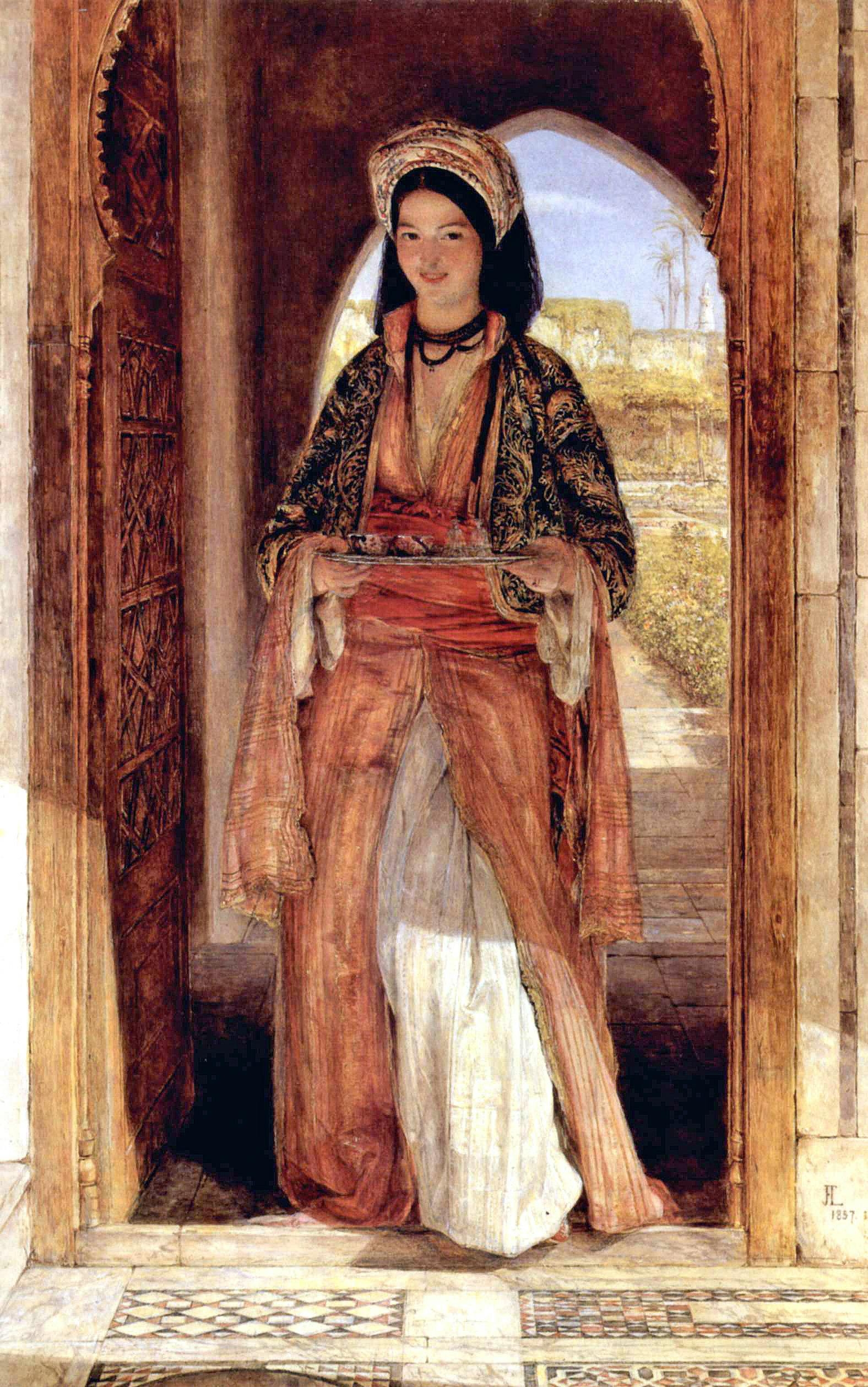
The Coffee Bearer by John Frederick Lewis, 1857. Via Wikimedia Commons.
Coffee Bans in European History
Coffee made its way to Europe in the 16th century, and the continent has seen a few bouts of bizarre coffee bans. One of the most famous incidents of coffee being banned took place in 18th-century Prussia, which is a part of modern-day Germany. It was banned by King Frederick II, more commonly known as Frederick the Great, and it was banned for the dumbest reason you could possibly think of. It had nothing to do with political dissidence, but it was because King Frederick preferred his subjects to drink beer.
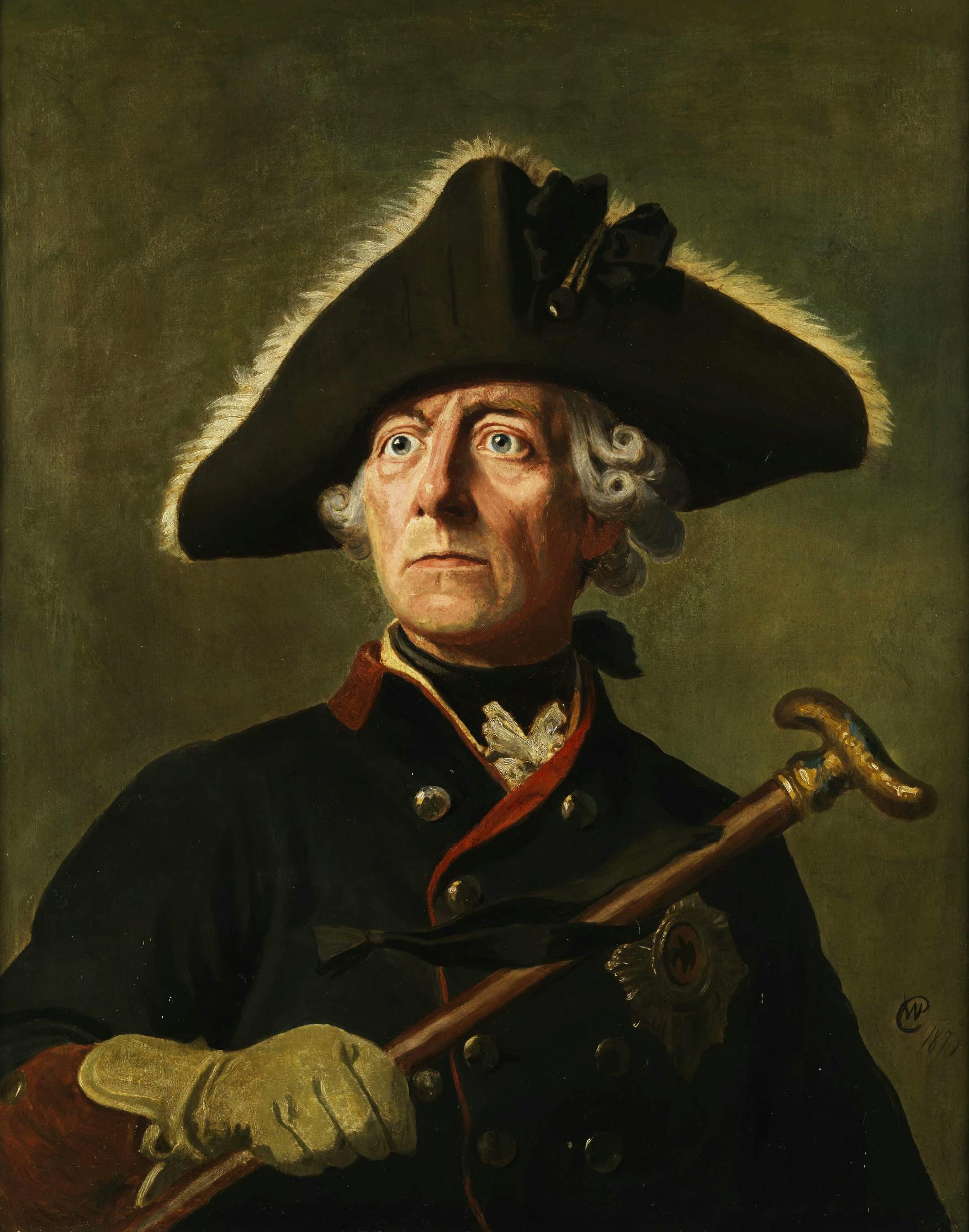
Portrait of Frederick the Great by Wilhelm Camphausen, 1870. Via Wikimedia Commons.
Frederick allegedly said, “It is disgusting to notice the increase in the quantity of coffee used by my subjects, and the amount of money that goes out of the country as a consequence. Everybody is using coffee; this must be prevented. My people must drink beer. His Majesty was brought up on beer, and so were both his ancestors and officers. Many battles have been fought and won by soldiers nourished on beer, and the King does not believe that coffee-drinking soldiers can be relied upon to endure hardships in case of another war.” However, Frederick’s ban on coffee didn’t last very long.
This wasn’t the only time coffee was banned in a European country. It was banned in Italy in the 16th century because people believed it was satanic, but the ban was lifted when Pope Clement VIII discovered he enjoyed the beverage and blessed it. Coffee has been banned five times in Sweden, the most famous (and bizarre) incident being when King Gustav III banned it in 1746 because he was convinced the beverage was deadly. The ban was lifted when Gustav was assassinated in 1792.
Coffee and the Birth of New Ideas
The first coffee stall in London was established in 1652, and by 1663, not only were there 83 coffee houses in London, but they were replacing taverns as the go-to venues. These coffee houses were mainly frequented by men.
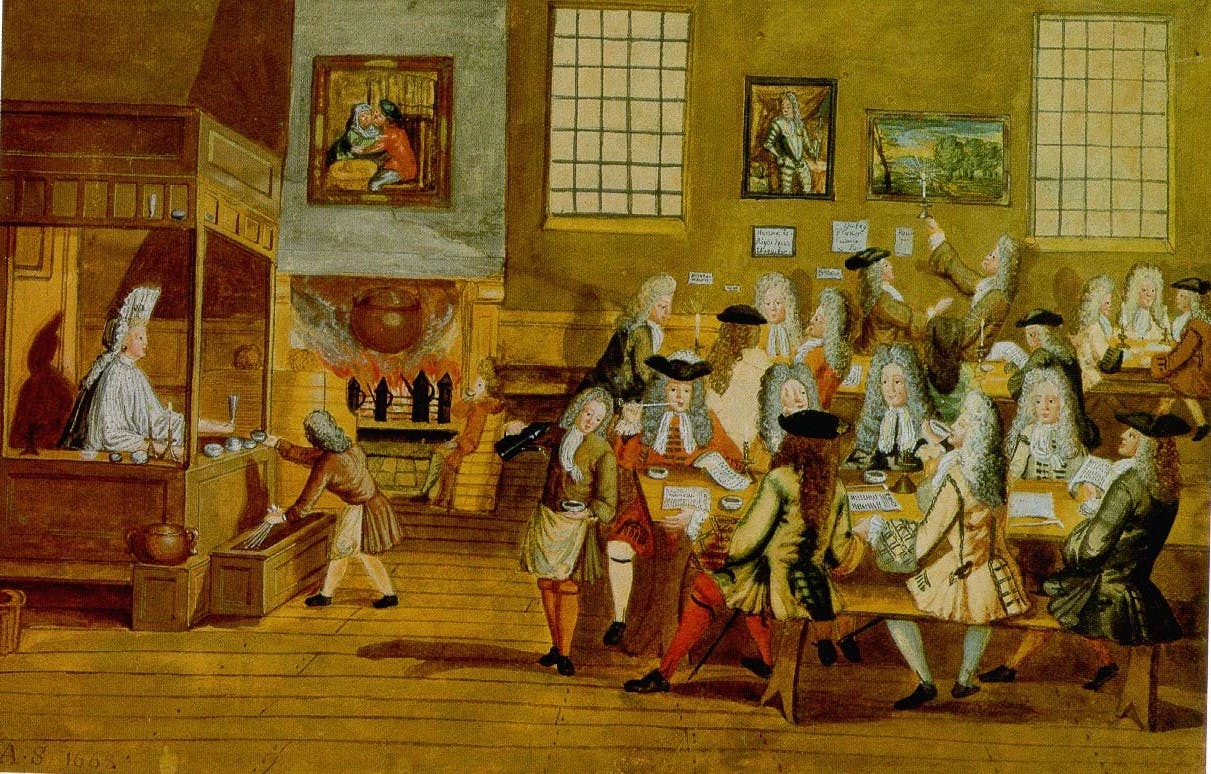
Interior of a London Coffee-house, 17th century. Via Wikimedia Commons.
“I think [this emerged from] a desire for men to talk business – whether their business was law or trade or the new science,” said Judith Hawley, professor of 18th-Century literature at Royal Holloway, University of London. “Coffee houses provided a number of things that taverns didn't.”
One of the things found at coffee houses was a “uniquely egalitarian model of sociability.” Men from all classes could sit around the long tables to socialize, talk business, read the newspaper, and discuss news, politics, and ideas.
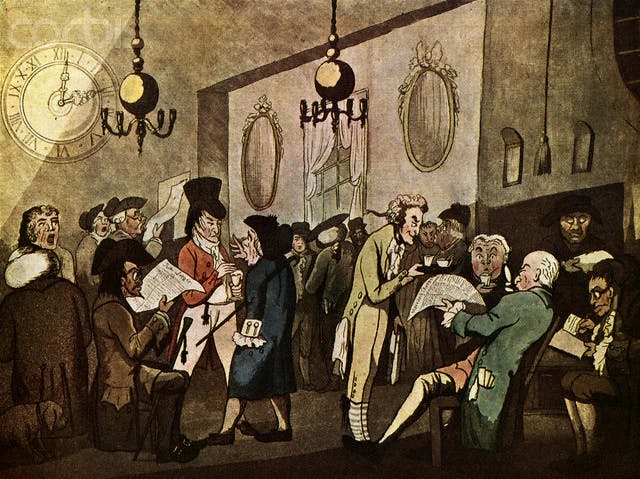
Lloyd's Coffee House by William Holland, 1789. Via Wikimedia Commons.
For this reason, London coffee houses were called "penny universities." For the admittance fee of a penny, you could gain access to the latest news and ideas. It’s no wonder that “many of the major social and political movements and institutions that were to shape European history emerged” from coffee houses. For example, both the London Stock Exchange and the East India Company were inspired by conversations in coffee houses.
It’s also not terribly surprising that the rise of coffee in Europe “coincided with the build-up to the early Enlightenment period.” In his book Where Good Ideas Come From: The Natural History of Innovation, author Steven Johnson says, "It's no accident that the age of reason accompanies the rise of caffeinated beverages."
Coffee and the Industrial Revolution
Another major consequence of the social shift from taverns to coffee houses was the shift from beer to caffeine. In Europe and the United States, people had commonly consumed alcohol as their main source of hydration throughout the day, as it was usually safer than drinking water. While their beer and wine had a lower alcohol content than what we drink today, they still had a calming or soporific effect (remember, alcohol is a depressant). Coffee, on the other hand, is a stimulant, promoting more creative thinking, more energy, and the ability to feel alert early in the morning and to stay up late.
In his New Yorker essay "Java Man," Malcolm Gladwell writes, "Until the 18th century, it must be remembered, many Westerners drank beer almost continuously, even beginning their day with something called ‘beer soup.’ Now they begin each day with a strong cup of coffee. One way to explain the Industrial Revolution is as the inevitable consequence of a world where people suddenly preferred being jittery to being drunk."
It’s possible that coffee aided the progress of the Industrial Revolution. Caffeine helped the “new industrial working class adjust to the demands of a work-day that no longer conformed to natural cycles.” Instead of living by the rising and the setting of the sun, people were forced to live by “clock time” and caffeine helped them get through it.
Coffee and the American Revolution
We all know the story of the Boston Tea Party, when American colonists dumped British tea into the Boston harbor to protest the British parliament taxing tea due to the 1773 Tea Act. After the Boston Tea Party was a success, the tea boycott continued, and American colonists replaced their tea with coffee, as drinking tea was deemed unpatriotic. Founding Father and future president John Adams even gave up drinking tea and learned to enjoy coffee just to spite the British.
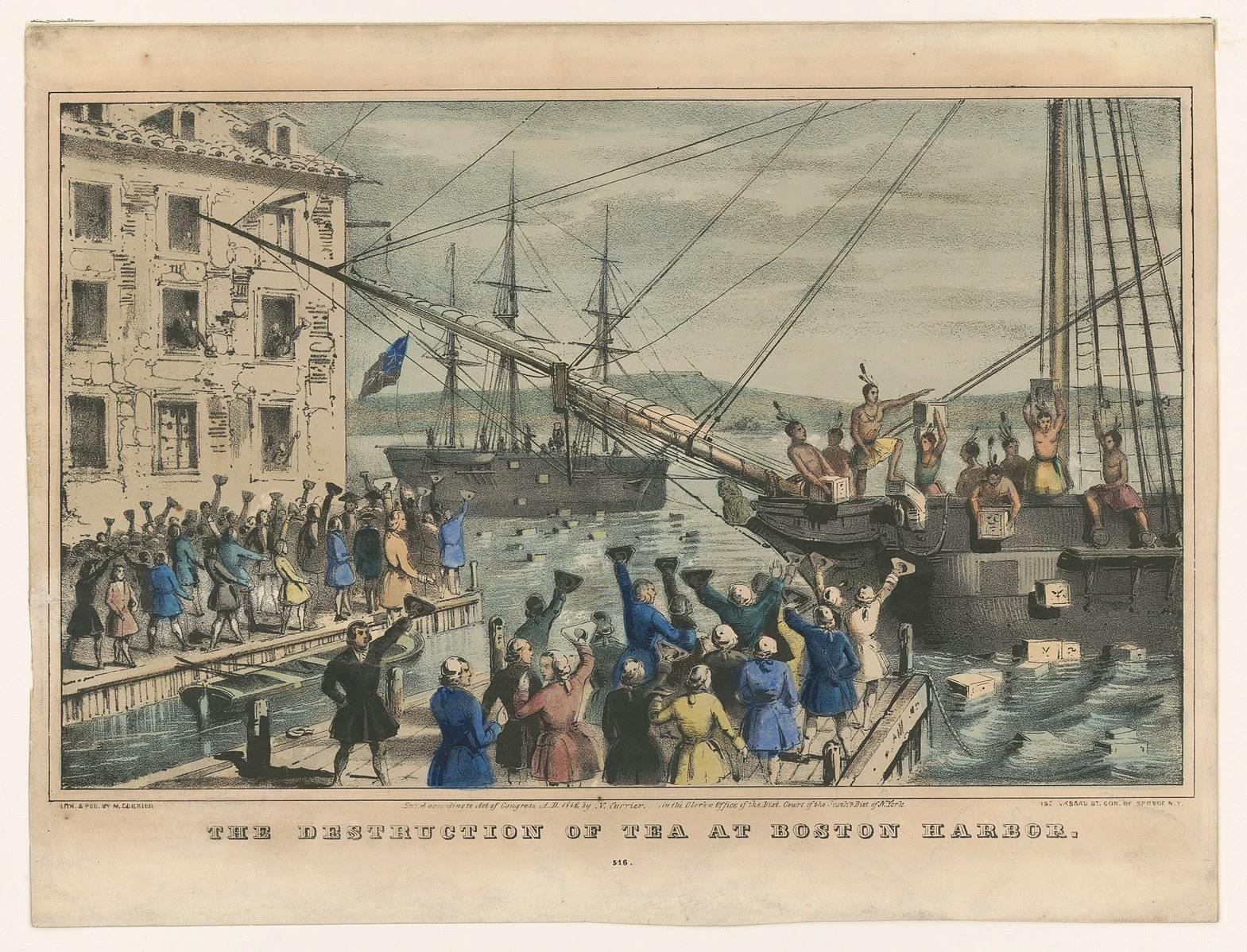
The Destruction of Tea at Boston Harbor. Via Wikimedia Commons.
This led to the popularity of coffee houses in the colonies, similar to the coffee houses in the Middle East and Europe. The Founding Fathers weren’t strangers to coffee houses, as “The Declaration of Independence was first read in front of The Bunch of Grapes, a Boston coffee house, and many of the revolutionary leaders met regularly at the Green Dragon, a coffee house and tavern.”
Coffee houses were also popular places for revolutionaries to hold secret meetings, a habit which the French later embraced when their revolution began in 1789.
Coffee Today
In the 20th century, coffee was seen as a drink of the intellectuals in the West due to it being embraced by popular writers like Ernest Hemingway, F. Scott Fitzgerald, and TS Eliot. This explains why coffee is popular among writers (yes, I’m drinking coffee as I’m writing this) and is seen as a beverage that influences productivity.
Though small, privately owned coffee houses are still popular, coffee is mainly consumed at home and through large chains like Starbucks (which opened in 1971) and Dunkin' Donuts (which opened in 1950).
Closing Thoughts
Most of our days don’t truly begin until we have our first sip of coffee, so it only makes sense that the history of coffee has influenced the course of history. From coffee being seen as a patriotic drink by the American colonists to it being banned in Europe for odd reasons, the history of coffee is as unique as mankind itself.
Readers make our world go round. Make your voice heard in the official Evie reader survey.